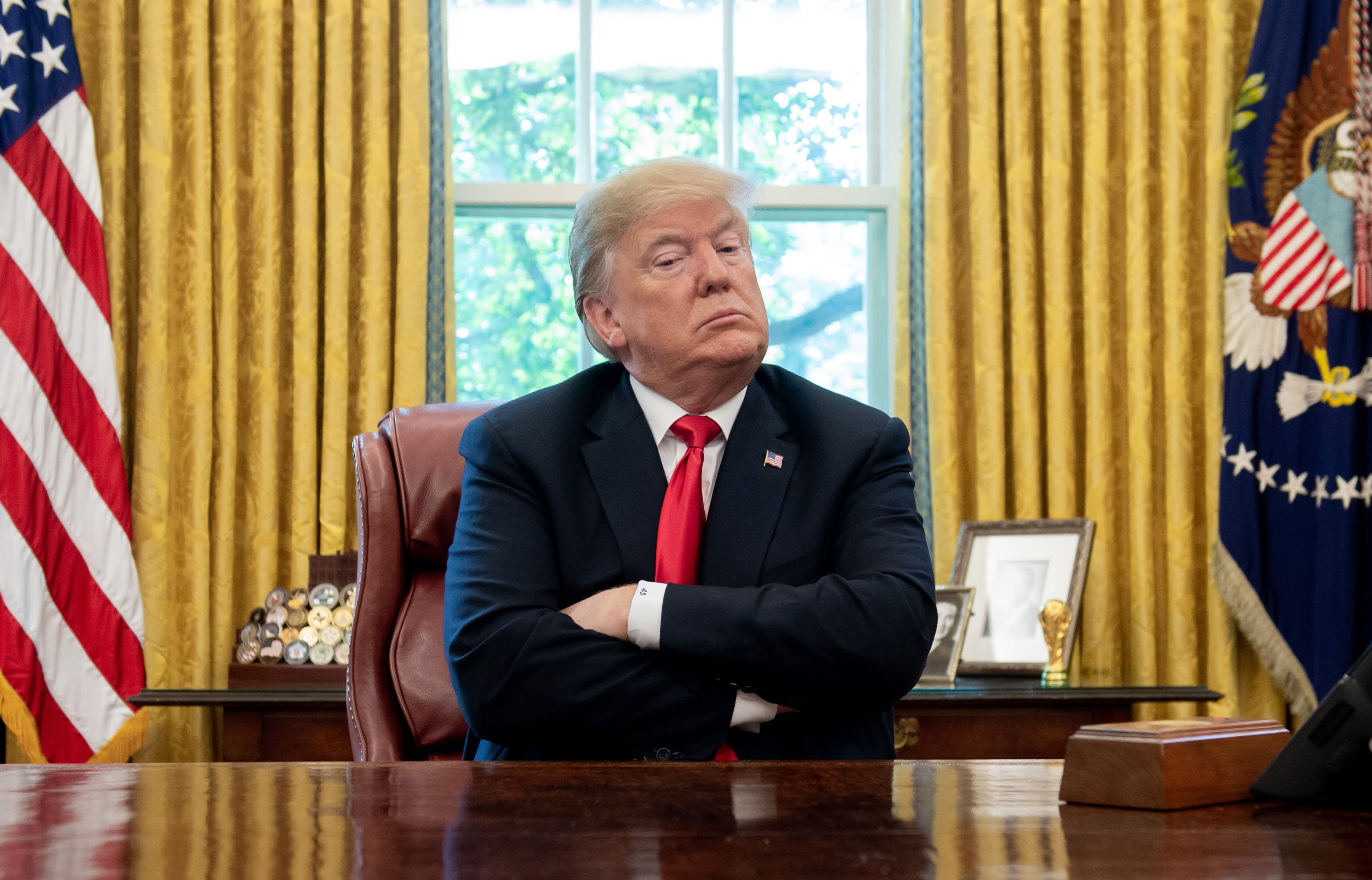President Donald Trump and economic advisor Peter Navarro are alone in the White House when it comes to blaming Federal Reserve Chairman Jerome Powell for the economic slowdown, administration officials told CNBC.
The president has criticized his central bank chief sharply, but stepped it up in recent days when he labeled the Fed leader "clueless Jay Powell." Trump has said the U.S. economy would be much stronger had the Fed not been raising interest rates and otherwise tightening monetary policy.
Two senior administration officials told CNBC that the overriding belief in the White House is that the rate hikes are not the main source of the problem.
National Trade Council adviser Peter Navarro, second from right, accompanied by from left, President Donald Trump, Secretary of Commerce Wilbur Ross, and Vice President Mike Pence, speaks during a signing ceremony for executive orders regarding trade in the Oval Office at the White House, Friday, March 31, 2017, in Washington.
Andrew Harnik | AP
Rather, they say, it is Trump's trade war and tariffs against China that began more than a year and a half ago holding back growth. The president, though, is not expected to relent in his criticism of Powell.
"It is what it is," both officials said in describing the feelings around the Trump-Powell dispute.
CNBC has reached out to the White House for further comment.
Other officials have been willing to join in anti-Fed messaging publicly, even as other policy concerns weigh privately. National Economic Council director Larry Kudlow, for instance, attacked Powell's "extreme tightening" on CNBC after the second-quarter GDP numbers were released. Kudlow did not respond to a request for comment.
The president ripped into Powell again Wednesday, amid what was the worst stock market sell-off of the year. Wall Street saw 3% off the Dow amid worries that an inverted yield curve in government bonds was signaling a looming recession.
"China is not our problem, though Hong Kong is not helping. Our problem is with the Fed. Raised too much & too fast," Trump said in a tweet.
The attacks have not let up, even though the Fed approved a quarter-percentage-point cut in its benchmark funds rate at the July meeting. Markets expect the central bank to follow up with another reduction in September, followed by an additional move either late this year or early in 2020.
In addition to complaining about rates that are higher than many of the Fed's global counterparts, Trump has bemoaned "quantitative tightening," or the reduction of bonds the central bank holds on its balance sheet. The Fed ended that process as of Aug. 1.


